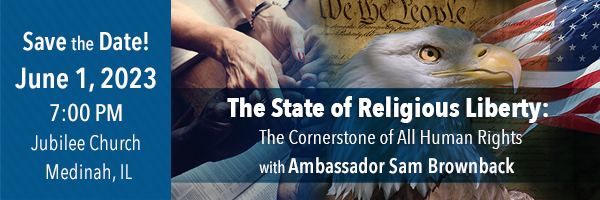U.S. Senator Marshall’s Stand
Protect Children & Taxpayers From Radical Gender Ideology
On May 15, U.S. Senator Roger Marshall (R-KS) introduced two bills to the U.S. Senate—one that would prohibit federal funds from supporting gender transition procedures, and another that would altogether ban such procedures on minors.
These bills are so radical in light of contemporary opinion, yet so simple and straightforward in achieving their goals, that when I read their respective texts, I was awed that the U.S. Senate still contains the type of statesman who will stand for the truth in this way.
And Marshall isn’t alone; co-sponsoring one or both of these bills are U.S. Senators Marsha Blackburn (R-TN), Mike Braun (R-IN), Kevin Cramer (R-ND), Steve Daines (R-MT), Cindy Hyde-Smith (R-MS), Mike Lee (R-UT), Markwayne Mulllin (R-OK), James Risch (R-ID), Marco Rubio (R-FL), Roger Wicker (R-MS), and Josh Hawley (R-MO).
On the one hand, the End Taxpayer Funding of Gender Experimentation Act of 2023 (S. 1595) would prohibit several of the current ways that federal dollars can fund gender transition procedures. Under this bill’s provisions, federal funds may not directly fund gender transition therapy or surgery. Neither may they be shuttled into health care plans that include such practices in their coverage.
Further still, no health care service that is furnished by a physician employed by the federal government or even furnished in a facility owned by the federal government may provide gender transition procedures.
The bill does clarify that non-federal health care providers would be free to provide such treatment, and that customers would still be free to seek out separate (non-federal) plans that cover such treatment should they want it. Yet, the federal government must stay out of it.
On the other hand, the Protecting Children From Experimentation Act of 2023 (S. 1597) takes it a step further when dealing with minors; it would ban gender transition procedures for minors in almost all cases—excepting rare medical situations. Under its provisions, any physical or mental healthcare professional would be fined (or face up to five years in prison) for performing or even referring a gender transition procedure.
The bill makes sure to clarify that minors may not be prosecuted for receiving such treatment; however, recipients of the treatment are allowed to bring civil action for relief against the physician who performed it.
Marshall and his colleagues’ stand for the truth deserves three whole-hearted cheers. They are daring to suggest that physicians performing supposedly “essential” gender transition care should be imprisoned! While it seems harsh, it is not any less harsh than the “care” they are purporting to provide—nothing less than a 21st-century version of the self-mutilation practiced in pagan rites for millennia, an abomination which defiles God’s created order bestowed to each one of us since our conception.
Now, it’s one thing to sit back and cheer for U.S. Senators who are willing to take stands like this, drawing clear lines between black and white in a world filled with multitudinous shades of grey. But politics is not a spectator sport. “The people” are more than just the hypothetical but fictitious “12th man” on the football team. “The people” send the players onto the field, tell them how to play, and recall them when they don’t do their jobs right.
Many of Marshall’s colleagues are assuredly shocked at his audacious proposal. But it’s audacious when viewed from a worldview that presupposes society has already settled the question—or at least the toleration—of gender transition procedures.
Thankfully, U.S. Representative Doug LaMalfa (R-CA) has introduced the same legislation in the U.S. House (H.R. 3328 and H.R. 3329), which has 40 co-sponsors, including U.S. Representatives Mike Bost and Mary Miller from southern Illinois.
If we all called or emailed our representatives right now and let them know that we—their very own constituents—agree with Marshall’s stand for the truth, the excuses to dismiss his position as audacious and radical, will start disappearing. Let them know that you sent them on to the field to represent you, and you will not tolerate government support of lies.
Take ACTION: Click HERE to send a message to U.S. Senators Dick Durbin, Tammy Duckworth and your local U.S. Representative to ask them to support or even co-sponsor these two bills. Impressionable children should not be making life-altering, body-mutilating decisions about their sexuality and adults should not be pushing woke sexual anarchy either.
U.S. Representative LaMalfa rightly points out in his press release,
let kids be kids and wait until adulthood to make a choice they likely wish they hadn’t as a child. Adults and the medical field shouldn’t be allowed to coerce this “woke” agenda onto them when they should be their protectors. Adults need to realize that their coercion is abuse, and should face appropriate consequences.















